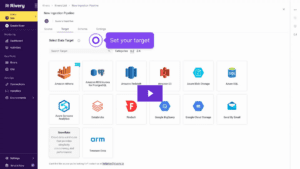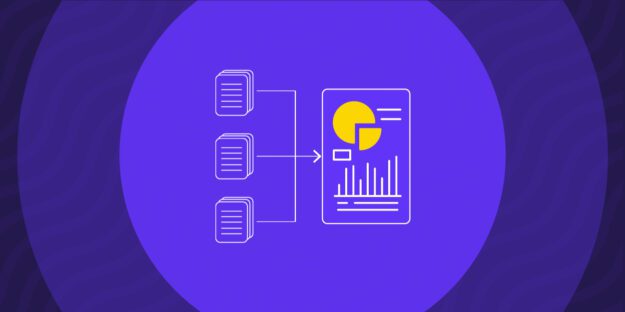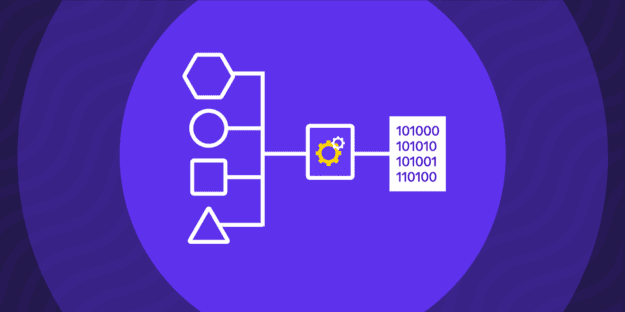As organizations develop huge data sets, there is a requirement for efficient, scalable, and simple ETL tools. These tools are excellent for managing, processing, and transforming data into valuable insights.
ETL tools aren’t solely about moving data around: They enable companies to leverage data effectively for smart, analytical decision-making.
Within cloud data management, various tools are at your disposal for ETL operations via AWS. While AWS provides a robust suite of ETL tools to enhance efficiency, there are additional options beyond the AWS environment that seamlessly integrate with AWS, facilitating ETL operations. These tools leverage the scalability and flexibility of the cloud to manage enormous volumes of data.
In this article, we’ll detail the best AWS ETL tools for your organization and the factors to consider when choosing one:
Factors to Consider when Choosing your AWS ETL Tool
Selecting the correct AWS ETL tools is essential for successful data management. The wrong option could cost your organization time and resources while wasting valuable data.
Here are some things to consider:
Features
You should consider the range of features offered by cloud based ETL tools. For instance, does the tool offer data transformation capabilities, data connectors, data cleansing functionality, automation options, and monitoring capabilities?
Scalability
Consider the scalability of the tools to manage large data volumes without compromising performance. This includes scaling vertically and horizontally based on your company’s data demand.
Ease of Use
It’s also important to evaluate the user interface, ease of configuration, and learning curve of the tools. Remember, intuitive tools with extensive documentation and support resources are preferable.
Pricing
Your budget is always a key consideration. Therefore, analyze the pricing structure of each tool—including upfront costs, ongoing expenses, and any additional fees for data transfer, storage, or usage. Likewise, look for transparent pricing models and cost-effective options for your requirements.
Integration Capabilities
You should assess the compatibility and integration capabilities of the tools with AWS services, third-party applications, and existing data infrastructure. If your organization has seamless integration—it allows data workflows and enhances efficiency.
Performance and Reliability
Performance is paramount when managing significant data. Therefore, evaluate performance benchmarks, uptime guarantees, and reliability. In addition, high availability, fault tolerance, and data consistency are important for mission-critical data operations.
Security and Compliance
Evaluate the security features, encryption standards, access controls, and compliance certifications each tool delivers. Data privacy, regulatory compliance, and risk mitigation are important in data management.
Top 7 AWS Tools for Modern Businesses
1. Rivery
Rivery is a SaaS platform that delivers powerful data integration and ETL capabilities. The platform lets you extract, transform, and load data effortlessly from various sources at scale and speed (with no coding required). Rivery is ideal for the e-commerce, SaaS, marketing, and finance industries.
The key features of Rivery include data migration, ROI tracking, usage monitoring, data visualization, and normalization. You can also use Rivery to integrate with BigQuery, Snowflake, Microsoft Azure, and Microsoft SQL Server.
Pros:
- Intuitive user interface.
- Extensive library of pre-built data connectors.
- Scalable infrastructure with automatic scaling.
- Flexible pricing options based on usage.
- Reliable customer support team.
Cons:
- Lack of advanced error handling features.
Pricing Model: Rivery offers a pay-as-you-go pricing model with tiered plans based on usage metrics, such as data volume and frequency of data transfers. Plans include starter, professional, and enterprise. Rivery’s free trial includes access to all of the professional plan features, for 14 days or 1,000 free credits (worth $1,200) of usage, whichever expires first. When your trial period ends, you can continue using Rivery by registering for any on-demand plan, or by contacting us to explore our annual and Enterprise plans.
2. AWS Glue
AWS Glue is a fully managed ETL service that simplifies the process of building, running, and monitoring data pipelines. The platform can handle data integration, data lake creation, and analytics across the retail, healthcare, and media industries.
The top features of AWS Glue include GUI support, glue data catalog, AWS Glue Crawlers, and automated schema discovery.
Pros:
- The serverless architecture eliminates the need for infrastructure management.
- Integration with other AWS services, such as S3, Redshift, and Athena.
- Automatic schema discovery and schema evolution.
Cons:
- It may require a technical team to handle the software because it’s a novel technology.
- Pricing based on data processing units can be challenging to estimate for unpredictable workloads.
Pricing Model: AWS Glue pricing is based on the number of Data Processing Units (DPUs) consumed during ETL jobs and crawlers. It offers scalability through automatic scaling of resources based on workload demands.
3. AWS Data Pipeline
AWS Data Pipeline—one of the most reliable AWS ETL tools—is a web service for producing and automating the movement and transformation of data across various AWS services and on-premises data sources.
You can use the platform for data migration, processing, and scheduled workflows. The platform is also excellent for the finance, gaming, and manufacturing industries.
The top features include monitoring and alerts, resource management, prebuilt templates, and improved reliability.
Pros:
- Simple interface for defining data pipelines using pre-built templates.
- Integration with various AWS services including S3, EMR, and RDS.
- Cost-effective solution for batch processing and data movement.
Cons:
- Limited support for real-time data processing.
- Requires familiarity with AWS services and configurations.
Pricing Model: AWS Data Pipeline bases its pricing on the resources used by the pipeline activities and how long they are active. It offers scalability through the ability to scale resources based on workload requirements. The platform has a minimum charge of $1 monthly.
4. Stitch Data
Stitch Data is a cloud-based ETL platform that simplifies data integration from over 140 sources to data warehouses and analytics platforms. This could based ETL tool doesn’t require coding, making it simple to use.
You can use Stitch Data for many industries, such as e-commerce, software as a service (SaaS), and digital media for data warehousing, customer analytics, and marketing attribution. You can also use the tool to integrate with BigQuery, Snowflake, ClicData, and Microsoft SQL Server.
Pros:
- Streamlined setup with minimal coding required.
- Automated schema creation and updates.
- Wide range of integrations with popular data sources.
- Transparent pricing with no data volume restrictions.
Cons:
- Some connectors may have occasional reliability issues.
- It may not be suitable for organizations with highly customized data requirements.
Pricing Model: Stitch Data offers transparent pricing based on a subscription model, with pricing tiers determined by the number of data sources and frequency of data syncs. The platform also offers a free trial; however, some integrations—i.e. Google Analytics 360—are only available with advanced or premium plans.
5. Talend
Talend is an open-source data integration platform that offers ETL, data quality, and data governance capabilities. Talend is perfect for industries like finance, healthcare, retail, and manufacturing for data warehousing and real-time processing.
The key features of Talend include cloud connection, GIT support, metadata for databases, files, generic schema, and SQL templates. Talend supports various databases, including Redshift, MySQL, Oracle, Hadoop/Hive, and cloud storage solutions like Amazon SES and Dropbox.
Pros:
- Comprehensive suite of data integration and transformation tools.
- Extensive library of pre-built connectors and components.
- Support for both on-premises and cloud deployments.
- Active community support and frequent updates.
Cons:
- Some advanced features may require additional customization.
- Pricing for enterprise editions can be expensive for smaller organizations.
Pricing Model: Talend offers both open-source and commercial editions. Pricing for the commercial editions is based on subscription plans tailored to the organization’s needs and scale. Scalability options include upgrading e-plans or adding additional components as required.
6. Informatica
Informatica is a comprehensive data integration platform that provides ETL, data quality, and master data management capabilities. Informatica works perfectly in finance, healthcare, retail, and telecommunications industries for data warehousing, business intelligence, and compliance reporting.
The key features include workflow automation, metadata management, real-time and batch processing, and monitoring and administration capabilities.
Pros:
- Robust ETL and data transformation capabilities.
- Advanced data quality and governance features.
- Broad support for various data sources and formats.
- Scalable architecture for handling large-scale data processing.
Cons:
- Higher cost compared to some other ETL solutions.
- Requires dedicated infrastructure for deployment and management.
Pricing Model: Informatica offers a flexible pricing model based on subscription plans tailored to the specific needs and scale of the organization. Scalability options include the ability to scale infrastructure resources based on demand.
7. Integrate.io
Integrate.io—formerly known as Import.io—is a cloud-based ETL platform that simplifies data integration and workflow automation. In addition, the platform caters to e-commerce, digital marketing, and hospitality for data migration, synchronization, and enrichment.
The tool’s key features include data mapping, solution provision, system failover, pre-built connectors, and cutting-edge security and compliance. Integrate.io can integrate with many platforms: Salesforce, Marketo, Zendesk, Google Analytics, etc.
Pros:
- Intuitive drag-and-drop interface for building data pipelines.
- Extensive library of pre-built connectors for popular data sources.
- Flexible scheduling and automation options for data workflows.
- Transparent pricing model with no hidden fees.
Cons:
- Limited support for advanced data transformations.
- Some integrations may require custom configurations or development.
Pricing Model: Integrate.io offers transparent pricing based on the number of data rows processed monthly and the frequency of data transfers. This pricing model may be more advantageous for smaller businesses with fewer data.
Furthermore, scalability options include upgrading plans or adjusting resources based on data processing needs
FAQs About AWS ETL Tools
What Are the Advantages of AWS Tool for Data Management?
AWS tools deliver scalable, adaptable, and reliable cloud-based infrastructure for ETL tasks. The tools streamline the data processing workflow—including AWS Glue, AWS Data Pipeline, and Amazon Redshift.
Does AWS Have an ETL Tool?
Yes. AWS offers services that allow ETL processes; these include AWS Glue and AWS Pipeline. These helpful services enable users to extract data from various sources, before transforming it and loading it into AWS data storage or analytic services.
What is Amazon Redshift?
Amazon Redshift is a fully managed data warehouse service that allows you to run complex queries on large datasets. It provides high-performance querying and scalable storage, so it’s ideal for data warehousing and analytics workloads.
How Does AWS Support Real-Time Data Processing?
AWS offers services like Amazon Kinesis for real-time data streaming and processing. Amazon Kinesis allows you to ingest, buffer, and process streaming data in real time, enabling you to build real-time analytics applications and respond quickly to changes in your data.
Moving Forward
Choosing the right ETL tool is crucial for unlocking the full potential of data. Whether streamlining data workflows, optimizing analytics, or ensuring regulatory compliance—the right tool can make all the difference.
We encourage you to explore further and make informed decisions based on your requirements. With the right ETL tool, you can use the power of data and thrive in a competitive industry.
Minimize the firefighting. Maximize ROI on pipelines.





